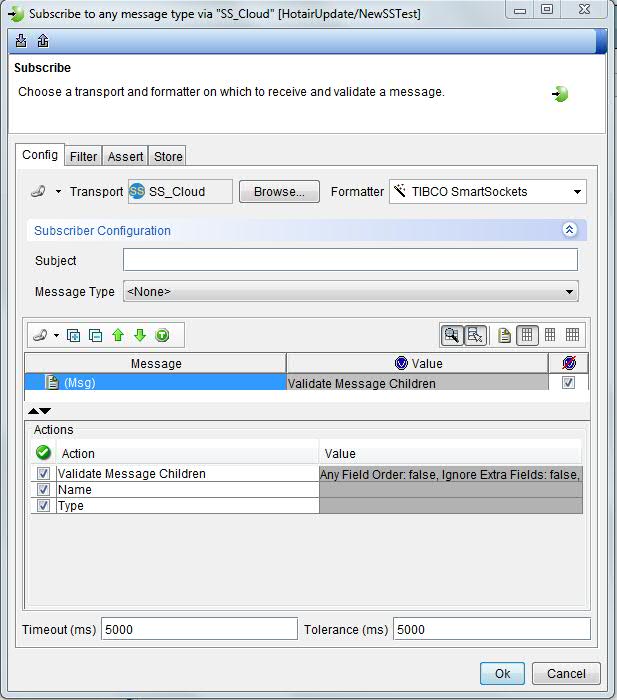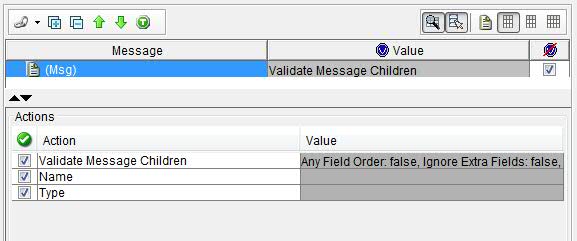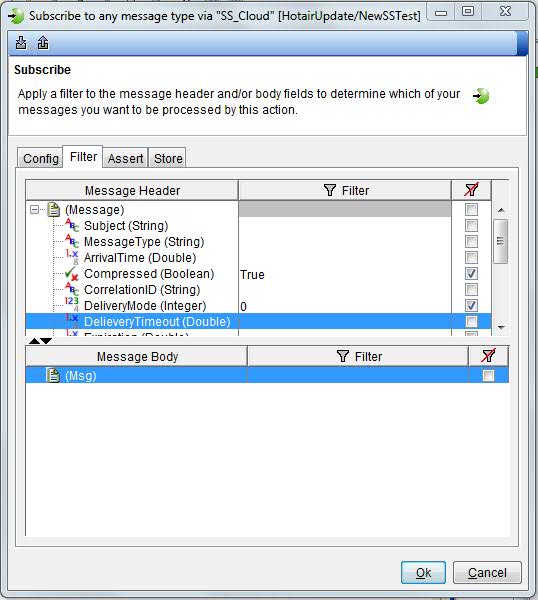Receiving SmartSockets messages
Receiving messages by using SmartSockets involves configuring the subscriber options, configuring the message content, and optional filtering.
About this task

Procedure
-
Configure the subscriber options.
Subscriber options for receiving messages by using the SmartSockets transport are managed under Subscriber Configuration.

The subscriber options are described in the following table:
Option Description Subject The subject of messages to receive. Message Type The Message Type of published messages to receive. Note: For more information, see your TIBCO SmartSockets documentation. -
Configure the message content
The content, structure, and validation actions of a SmartSockets message body can be configured like any other message in HCL OneTest™ API.

For more information, see API Tester Reference.
-
Configure filtering.
After messages are passed to HCL OneTest™ API, they can be further filtered (by using header and body fields) with the configuration in the Filter tab.

In this case, Compressed must be true and DeliveryMode must equal "0". Otherwise, HCL OneTest™ API discards the message.